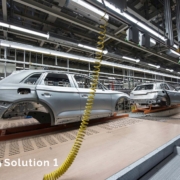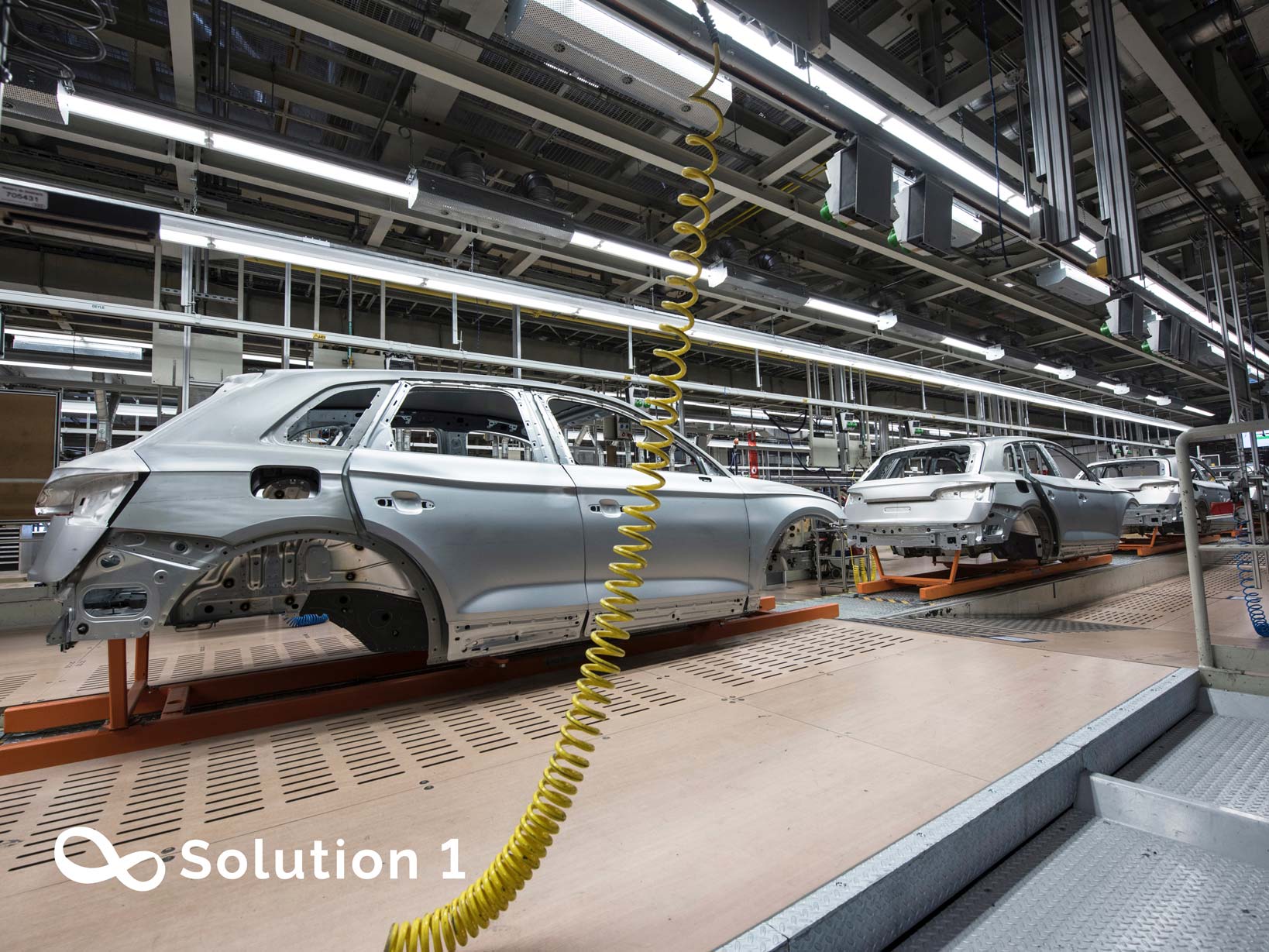Driving Forward: The rise of mobility services and Changing auto industry dynamics.
For many decades, the automotive industry has been highly concentrated, where the incumbents held a stable position. There has never been a real threat of substitutes because no other way of mobility allowed the same level of convenience and individual freedom. Over the years, automotive manufacturers have outsourced their production to an increasing extent, resulting in an enormous know-how shift to suppliers. Consequently, the value added by automotive manufacturers decreased to only 25%.
The automotive supply chain is not vertically integrated, but rather complex and fragmented. Automotive manufacturers do not directly own the product and service channels. Those are mainly outsourced to authorized dealers who are responsible for product sales and service operations. Even mobility services are usually performed by third-party companies and just directed by the manufacturer. There is an agreement among experts that the prevalent disruption will lead to a decline in the automotive industry and accelerated growth in the personal mobility market. This development shows customers’ willingness to spend money on personal mobility even if buying cars will not be a prerequisite anymore.
The actual value that can be provided by the product itself is also tremendously lowered due to changing customer needs. The automotive manufacturers are losing their position as a status symbol. At the same time, the preferences of new generations of mobility customers are shifting from owning to using a car. The customers want to use a car and enjoy individual mobility but without the downsides of vehicle ownership like parking costs, insurance, maintenance, etc.
“According to the Deloitte Global Automotive Mobility Market Simulation Tool, the overall size of the automotive mobility market in the European countries and the United States is projected to increase to $153 billion and $281 billion, respectively, by 2035, with a compound annual growth rate CAGR of 5% from 2022.”
The automotive industry has had great changes in the last decade, which is getting smart, intelligent, digital, connected, and innovative services. New technologies enabled progressive digitalization throughout all industries, facilitating novel services and innovative business models. This transformation, named servitization, requires developing technology-enabled business models that facilitate the provision of customer knowledge-based services during the entire life-cycle of manufacturing products. Therefore, it imposed the need upon automotive manufacturers to rethink their competitive advantages and differentiation strategies.
Most of the product-oriented services are charged and represent a major source of revenue for the automotive manufacturer and its dealers, up to 50% of the total profit. Besides these product-oriented services, BMW has recently expanded its service portfolio beyond product ownership. Use-oriented services like leasing or renting enable product offerings without a switch in ownership.
New innovative business concepts, like carsharing, go one step further by focusing on the use of the product while making it available to a larger number of people, significantly increasing the efficiency of the product’s use. Such innovative services are usually provided by third-party companies, like the carsharing provider Drive Now in the case of BMW. A joint venture between BMW and the car rental company Sixt, since 2011, Drive Now has been offering Europe-wide shared and on-demand mobility services.
Over the last years, BMW has expanded its use-oriented services which now account for about 25% of the service portfolio. New innovative business models, namely DriveNow, ReachNow, and ParkNow are providing customer value without a switch in product ownership and the respective downsides.





